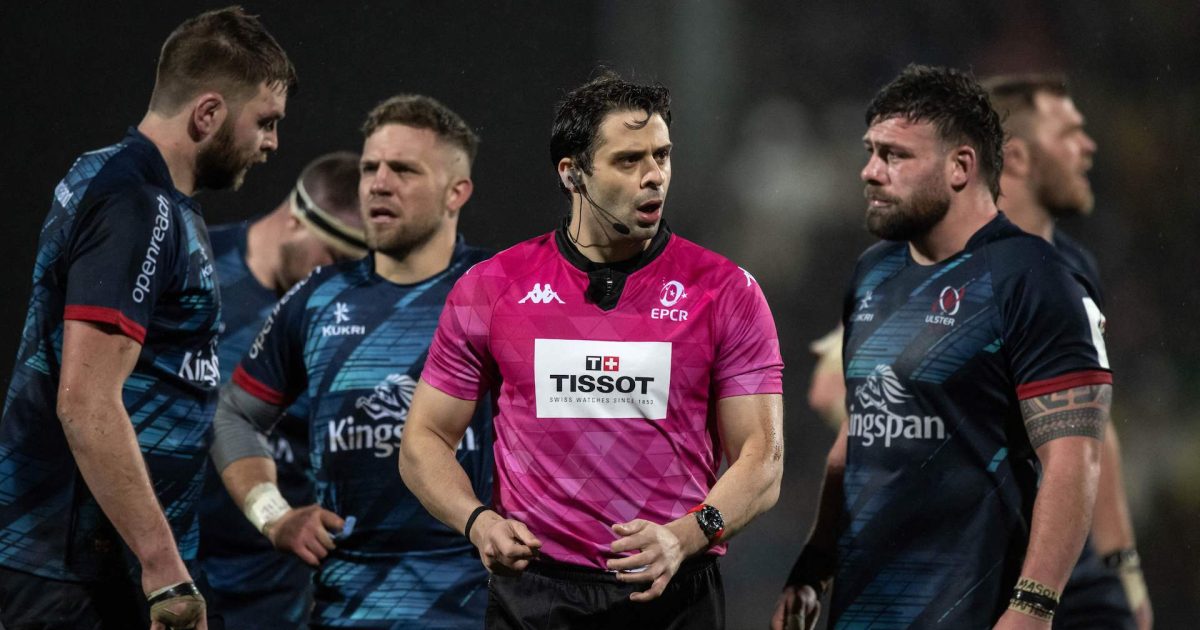'I think it should have been a penalty try'

Ulster head coach Dan McFarland was proud of his side’s efforts in their “heartbreaking” defeat to La Rochelle but felt they were denied what could have been a decisive penalty try in the low-scoring clash.
Reigning champions La Rochelle snatched a dramatic 7-3 Heineken Champions Cup victory after replacement prop Joel Sclavi crashed over for a last-minute converted try at Stade Marcel Deflandre.
That consigned Ulster to a sixth defeat in their last seven games, including all three of their matches in the Heineken Champions Cup, but their battling performance in atrocious conditions in France has kept them in the hunt for a place in the last 16.
To reach the knock-out stages they will have to beat Sale Sharks at the Kingspan Stadium in the final round of pool games.
McFarland said following the defeat: “It’s heartbreaking, but the bottom line is I was really proud of what they produced.
“We’ve lost a game right at the end, but the bottom line is they’re European champions for a reason – they won that game, I don’t think we lost it.”
“They won because when they needed to, they produced the goods. It was tough going and I thought we were excellent.”
Ulster took the lead through Nathan Doak’s 63rd-minute penalty but McFarland feels they should already have been in front at that point.
He said: “I believe we should have had a penalty try when we were completely dominating them five metres from their line around 35 minutes. They got a yellow card.
“We had our moment when we were dominant and they offended so many times on those mauls that I think it should have been a penalty try.
“When they had theirs five metres out, they dominated enough to get the score and that was the difference.”


































Absolutely should have been a penalty try, or at least a second yellow when they infringed 4 separate times on the passage of play after the 1st yellow.